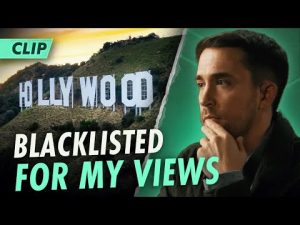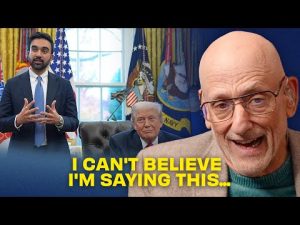In a world where politics often divides people faster than a hot knife through butter, a fascinating story has emerged that showcases a remarkable transformation in one individual’s political journey. What began as a conventional leftist worldview during high school and college morphed into a full-blown conservative perspective after spending time in diverse cultures and witnessing the real-world effects of leftist policies. This story is as compelling as it is relatable, touching on the trials and triumphs of balancing personal beliefs with the often hostile environment of the documentary filmmaking world.
The transformation start with a quest for adventure that led this young filmmaker around the globe. While working on a documentary, he encountered the harsh realities of left-wing ideologies crumbling when confronted with reality. This disillusionment ignited a passion for conservative literature, philosophy, and social science—particularly the influential writings of Charles Murray, whose critiques of welfare policies resonated deeply. In essence, the filmmaker realized that his observations aligned more closely with conservative principles, prompting a complete shift in his political ideology.
However, the path was not paved with gold. Once word spread about his newfound conservative stance, the person faced a daunting professional backlash. Opportunities vanished overnight, as many in the documentary industry took a hard stance against his beliefs. The filmmaker was effectively blacklisted, with colleagues expressing “can’t work with you” sentiments simply because he dared to embrace conservative values. This experience, though harsh, showcased just how intolerant some sectors can be toward divergent opinions.
Despite these challenges, our filmmaker chose a different route than many of his peers, who decided to keep their political beliefs under wraps. Instead of playing the game of obfuscation, he leaned into his convictions. Adopting a “burn the boats” mentality, he delved deeper into political and intellectual work, even if it meant sacrificing his previous social circles and enjoying a quieter life. He understood that for those daring enough to inhabit the world of art, culture, and politics, maintaining authenticity comes with a price, but it’s a price worth paying to avoid a life of mediocrity.
By transitioning to a new community and embracing his principles, this filmmaker discovered the liberating feeling of living authentically. Though he initially encountered social cost and upheaval, he ultimately found deeper connections and a greater sense of purpose in his new life. No longer did he feel pressured to conform to a “managed opinion,” which is often more phony than creative. Instead, he basked in the beauty of genuine friendships and community support, having tapped into a richer, more fulfilling existence far removed from the drab and sterile culture that initially clouded his early years in the industry.
In conclusion, this narrative serves as both a cautionary tale and a beacon of hope. It highlights how navigating the complex world of politics can transform not only one’s beliefs but also one’s entire life. The journey from disillusionment to conviction is fraught with challenges, yet it also holds the promise of unprecedented freedom and fulfillment. For those willing to take the plunge and embrace their true selves, the rewards can be extraordinary, making the sacrifices along the way seem trivial in hindsight. Indeed, this filmmaker’s story reminds us that authenticity, no matter the cost, often leads to the most enriching adventures of all.







